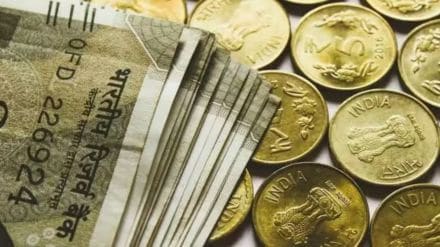The Bharatiya Janata Party (BJP) in its manifesto unveiled on Sunday promised to continue with an increase in minimum support price (MSP) from time to time, but refrained from acceding to the long-pending demand from a section of the farming community for legal guarantee to these floor prices.
With the theme of empowering farmers and boosting the fisheries sector, the manifesto included a range of promises aimed at making the agriculture sector remunerative, but was silent on the earlier promise to double farmers’ income.
The BJP promised to strive for self-sufficiency in the production of pulses varieties like tur, urad, masoor, moong and chana and edible oil production such as mustard, soybean, til and groundnut.
The party also promised to expand access and encourage adoption of Nano-urea, which has an efficiency level of 90% as compared to around 40% of conventional urea.
Currently, MSP is declared for as many as 23 crops, while procurement is more robust for paddy and wheat, while pulses purchases have in recent years witnessed some increase.
The Congress party in its election manifesto has promised to provide “legal guarantee” to the MSP for crops as recommended by the Swaminathan Commission.
The average annual growth rate of the MSP in paddy and wheat increased during UPA’s regime (2004-5 to 2013-14) was 9.4% and 8.4% respectively against an increase of 5.7% and 5.5% respectively between the NDA government (2014-15 – 2022-23).
The BJP’s Sankalp Patra has stated sustained financial support of Rs 6000 annually to the 90 million farmers under the PM Kisan Samman Nidhi Yojana (PM-Kisan). Since the launch of direct cash transfer scheme – PM Kisan in February, 2019, more than Rs 2.97 trillion have been transferred to farmers bank accounts through 16 installments of Rs 2000 each.
The document moots strengthening of Pradhan Mantri Fasal Bima Yojana (PMFBY) through use of technology for accurate assessment of crop losses and faster payouts. Under the PMFBY, currently implemented in 22 states and UTs, farmers pay a fixed premium of just 1.5% of the sum insured for rabi crops and 2% for kharif crops, while it is 5% for cash crops. The finance ministry has allocated Rs 15,000 crore for FY25.
The country imports around 56% of the total annual consumption of edible oil of around 24 million tonne (MT). In the case of pulses, the country imports (mostly urad, tur and masoor varieties) about 15% of the total consumption of around 27-28 MT.
In response to the promise of expanding crop diversification to make agriculture sustainable and remunerative by BJP, Siraj Hussain, former secretary, department of agriculture, said “it can be a good beginning if it enables incentives on the basis of ecologically suitability of the crops,”.
The party also promised launch of Krishi Infrastructure Mission for coordinated implementation of agri-infrastructure projects in the areas of storage, irrigation, grading and sorting units, cold storage facilities and food processing. In addition, it would launch an indigenous Bharat Krishi satellite for farm-related activities like crop forecasting, pesticide application, irrigation, soil health, and weather forecasting.
The manifesto also promised to extend the Pradhan Mantri Matsya Sampada Yojana to increase fish production and seafood exports.It pitches for creation of production clusters for vegetables such as onion, tomato, potato etc. It promised creation of a global millet hub in the country.
“The manifesto provides a holistic road map for making agriculture economically and ecologically sustainable and remunerative for farmers,” Binod Anand, member of the MSP committee set up by the agriculture ministry, told FE.
Since August 2021, 75 million bottles of nano-urea have been sold, according to official data. One 500-ml bottle of Nano Urea is equivalent to one bag (45 kg) of conventional urea.
